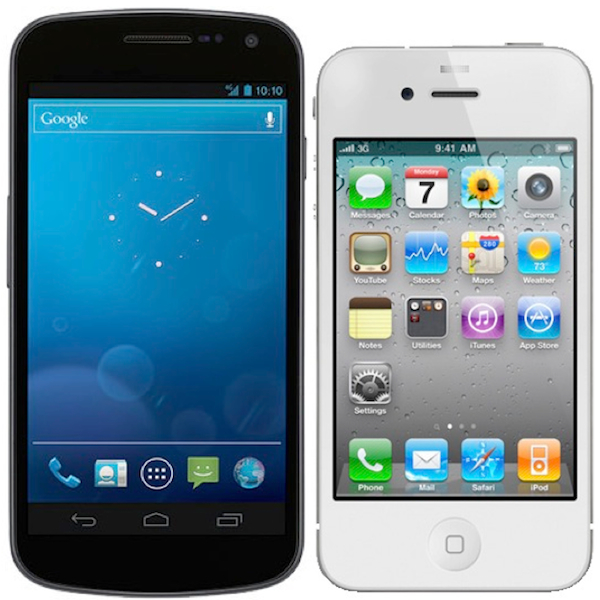
Nearly three quarters of US young adults own smartphones
Well, Nielsen sure knows how to rain on the iPhone 5 hit parade. Just two days before the handset's presumed debut -- Hey, Apple has a big media even on September 12 -- an Android storm pours down on iPhone rumors. Nielsen today says that 74 percent of Americans between 25 and 34 own a smartphone, up from 59 percent a year earlier, and more likely Android than Apple. Quick, someone grab an umbrella! And a dry towel. Kleenex too!
Meanwhile, teens also are big smartphone owners -- 59 percent of 13 to 17 year-olds. Get this: 58 percent of all American teens have smartphones, up from 36 percent a year earlier. Now there's a group Apple, Android and Windows Phone makers should really want to get.

'The Android operating system, clear and of itself was not something that infringed'
I'm watching a video interview Bloomberg's Emily Chang conducted with Apple-Samsung trial foreman Vel Hogan three days ago. At 9:17, he makes a provocative statement: "The Android operating system, clear and of itself, was not something that infringed".
Do you believe him? I ask, because pundits fell over themselves this week claiming that the jury verdict means big trouble for Android and Google.

Smartphones shipments soar in China, Android benefits
CEO Tim Cook describes China as Apple's second-most important region. For good reason. IDC predicts that smartphone shipments to the People's Republic of China will pass the United States this year. There's the question, which benefits more: Android or iPhone/iOS?
"The PRC smartphone market will continue to be lifted by the sub-US$200 Android segment", Wong Teck-Zhung, IDC senior market analyst, says. "Near-term prices in the low-end segment will come down to US$100 and below as competition for market share intensifies among smartphone vendors. Carrier-subsidized and customized handsets from domestic vendors will further support the migration to smartphones and boost shipments. Looking ahead to the later years in the forecast, the move to 4G networks will be another growth catalyst".
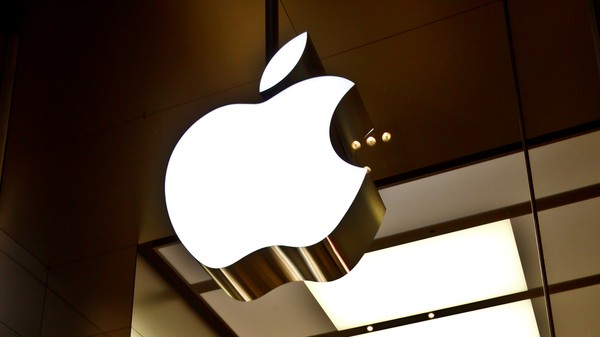
One rotten Apple spoiled my perfect post-PC pie
I can't win. Just when I think I've finally cooked-up the perfect post-PC computing recipe, along comes some killjoy to spoil all the fun. This time around it's Apple. The Cupertino goon squad is on a mission to stomp out all unauthorized uses of lowercase letter "i" (among other things), and my latest pet project -- moving my entire computing life to a non-PC device -- is about to fall victim to their litigious ways.
You see, I made the unforgivable decision to deviate from Apple's proscribed post-PC formula (i.e. iPhone/iPad) and instead embrace the ways of the rebel Android Army. After several weeks of tweaking and tuning, I've finally achieved a level of PC-independence I never thought possible. But given last week's Apple-Samsung jury decision, I fear it may have all been for naught. That's because the reverberations from such a landmark case will no doubt spread far beyond its principle defendant (you didn't really think this was about hardware, did you?) to strike at the very heart of Google's OS strategy.
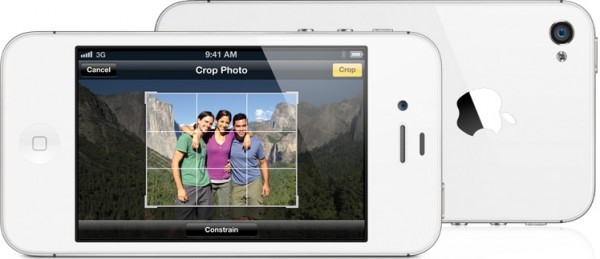
Gartner says more iPhones sold in Q2 than Apple reports shipped
Well, hell's bells. Apple sold about as many iPhones as Wall Street expected during second quarter after all. That's the big, glaring takeaway I see from phone sales data Gartner released today. The numbers also show something else: The analyst firm either has really lousy methodology (which I doubt), or Apple apologists have been wrong all along (as I've asserted for years). Gartner reports 28.94 million iPhones sold, to Apple's 26.03 million.
Gartner is the only major analyst firm tracking actual handset sales to end users, while others record shipments into the channel. Apple does the same, although every time Samsung reports smartphone numbers, Apple apologists rush to claim the figures are shipped while calling iPhone's numbers sales. Not so. Apple reports shipments, too, and corresponding revenue, which comes from sales to cellular carriers, other third parties and direct sales. As such, Gartner's numbers rarely reconcile with Apple's, but they're usually lower. For second quarter, they're considerably higher. The difference is significant, and in Apple's favor.

U.S. reaches smartphone market peak, while the rest of the world keeps on going
Who would have guessed that it was time for the smartphone market to take a breath and slow down before the second half of 2012? Strategy Analytics released a report analyzing the U.S. smartphone market and shipments for Q2 2012, focusing on the two biggest smartphone operating systems, Android and iOS. The results make for an unexpected scenario: has the smartphone market reached its peak and if so, who’s the winning platform?
The Strategy Analytics report posts a decrease on smartphone shipment growth year-over-year with a 70.1 percent increase in 2011 and a 5.4 percent decrease for 2012, calling for a comparison with the report made available by IDC, which focuses on worldwide sales and market share. The differences between global results and those in the U.S. only suggest the U.S. market might have reached its peak, while worldwide smartphones are enjoying better sales.

A 7-inch tablet from Apple would just create more lawsuits
Apple is one of the most important companies in the world of consumer technology and one that has changed the destiny of the smartphone and the tablet. It came as a big surprise when the Cupertino, California-based company announced the iPad more than two years ago. In 2010, Apple made waves with its first tablet generating $9.566 billion in revenue from the iPad alone, and in 2012 it's making headlines again with a smaller, seven inch tablet it hasn’t even announced yet.
In 2010 Apple had the market all to itself, with the iPad dominating 83 percent of the tablet market. Why? The iPad wasn't designed to have the most cutting edge software or hardware in terms of features or speed, but it was conceived to offer easy-to-use software with hardware to match it, wrapped in a good looking package. It sold 14.789 million units in 2010 alone, so it's clear the idea caught on. The original iPad was released in a time when tablets weren't as popular as they are today, and despite previous efforts by Microsoft with the TabletPC, they never caught up. So what's changed?

Is 99 cents too much to pay for an Android game?
Soon after colleague Randall C. Kennedy wrote that "Piracy is killing Android", developer Madfinger Games complained that incredibly high piracy rate on Android devices is why Dead Trigger is free on Google Play, while 99 cents on Apple’s App Store. Is iOS better than Android in this regard?
After an initial price of “as little as buck”, some game developers are going free, due to the piracy rate that plagues the Android world. Madfinger Games hasn’t provided any statistic as to how many of their game installs account for pirated copies, but according to Google Play numbers their installs are in-between 100,000 to 500,000, with an exponential increase at the end of the last 30 days. The game has been free since July 20, so in just four days its popularity skyrocketed. Does this mean a high piracy rate or just the plain “it’s free, I’ll take it” thinking?
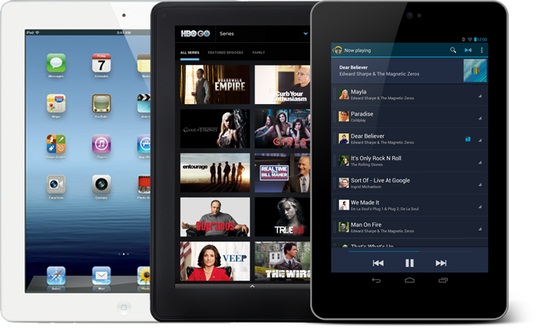
Nexus 7 will lead Android tablets to overtake iPad
Ever since the release of the Nexus 7, analysts have wondered what impact, if any, it would have on Android tablets' market share battle with the iPad. The possible release of the iPad Mini, later this year, could throw another wrench into the works. Fortunately, we have already seen an Android vs. Apple battle in the smartphone market. Let's take a look at the parallels we can draw between the smartphone and tablet market and project the possible market share trends in the tablet market.
Before we begin, we need to understand the global smartphone market share trends over the past couple of years. It is important to understand that ever since the iPhone and Android were launched, the market segmented into legacy smartphone platforms (BlackBerry, Symbian & Windows Mobile) and modern smartphone platforms (iOS, Android & Windows Phone).
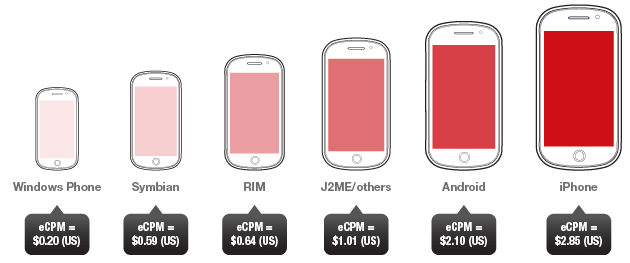
iOS is more profitable ad platform than Android, but for how long?
Ad network reports about mobile platforms are a dime a dozen. Many boast about iOS presence and the oodles of eyeballs. Opera has joined in, releasing their first State of Mobile Advertising report, which, for the second quarter of 2012, focuses on mobile advertising revenues. The browser maker puts all the big players -- Android, iOS, BlackBerry, Symbian and Windows Phone -- under the microscope.
Like other ad network reports, Opera's puts iOS at the top of the revenue food chain, with an average eCPM (effective cost per thousand impressions) of $2.85. iOS' main rival, Android, follows, with average eCPM of $2.10. On the tablets, iOS is even more profitable than on the smartphone market, with a $3.96 eCPM.

Android tops the smartphone market once again
If you’re a U.S. resident and want to buy a phone today, there’s a one-in-two chance you’ll get a smartphone.
According to a recent report from Nielsen, 54.9 percent of U.S. phone subscribers owned a smartphone as of June 2012. By comparison, in February 2012, smartphone adoption was at 49.7 percent, which can only mean one thing: feature phones are slowly going away and smartphones are here to stay.
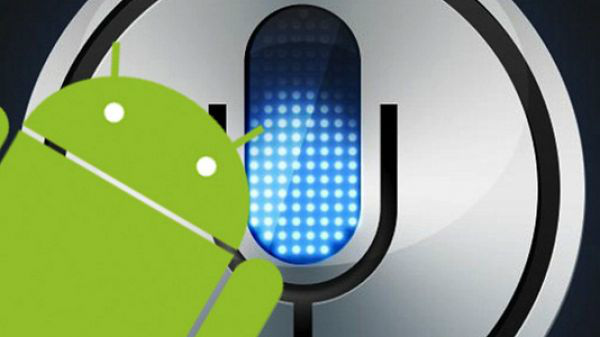
Google Jelly Bean smokes Apple Siri
A week has passed since I started up my Google I/O-issue Galaxy Nexus and updated to Android 4.1 (aka Jelly Bean). Since then, my daughter and I faced off Google's Voice Assistant against Siri (on her iPhone 4S). The results aren't surprising. Google's depth as a search provider proves its wherewithal against Apple, which calls Siri a personal assistant. But Jelly Bean's feature, used alongside Google Now, is every bit more and every bit what a digital assistant should be. Siri sucks even more, by comparison.
I will be absolutely clear: Together, Voice Assistant and Google Now represent a watershed development, living up to what Apple promises with Siri. Google has successfully presented its depth of search in a truly meaningful manner -- one that can change how people interact with mobile devices. If execution improves over time, particularly as Google Now learns personal habits, these innovations could be as important to the search giant as the development of its algorithm.

I declare independence from Apple
Since December 1998, when on impulse I bought the original iMac from CompUSA, I've used Apple gear. No longer. Late yesterday, I replaced the last fruit-logo with another, fulfilling my pledge nearly a month ago to boycott Apple. I wanted to declare independence sooner, but with so much news to write about in June and Google I/O last week, researching and replacing the AirPort base station was too much trouble. But it's offline now -- and, along with Apple TV, going on Craigslist today.
Circumstances since choosing to boycott make me all the more adamant. Last week, US District Judge Lucy Koh issued two preliminary injunctions against Samsung devices -- Galaxy Tab 10.1 and Galaxy Nexus. Yesterday she denied Samsung's request to stay the ban pending appeal. Anticipating Nexus' similar fate, Google swiftly responded by pulling the phone from its online store and dispatching an update to existing phones. I chose to boycott being so angry by Apple's aggressive patent bullying that thwarts competition and takes away consumer choice. Today, I celebrate America's independence anniversary by gaining freedom from Apple.
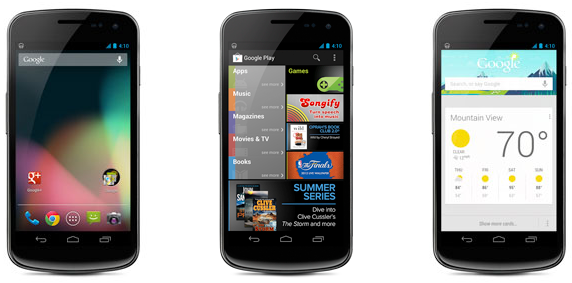
Google sends wrong update to Galaxy Nexus
Let me see if I understand this. Google, the company that perfected web search and through it changed the lives of billions of people, must disable the local functonality from its flagship smartphone -- all because of Apple? Now do you see why about a month ago I boycotted Apple and last week called the preliminary injunction against Galaxy Nexus shameful?
Watch out. This is one Android update you don't want to accept. I asked my wife this morning: "Do you use local search on your phone?" She has Galaxy Nexus. My lovely looked up with a startled WTF looked and answered: "Yeah". Of course she uses local search on her phone. Who doesn't? You. If you own Galaxy Nexus and accept the update. It's the wrong one for Google to send out. The search giant should dispatch Android 4.1, which if, I understand correctly, changes search so that Apple's bully patent doesn't apply. C`mon, Google, you can do better.
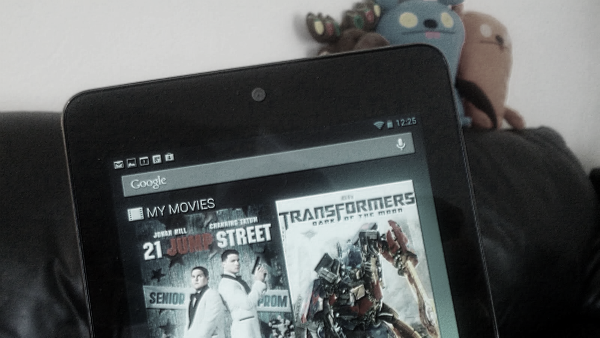
Google Nexus 7 first-impressions review
Last week, Google introduced its first branded tablet during the I/O developer conference. You can preorder one now, for delivery in a few weeks: $199 (8GB) or $249 (16GB). Maybe you're wondering if you should get one. I'd like to help that decision-making process, having the privilege of using Nexus 7 since June 27.
Nexus 7 is the most important Android device released to date. The tablet represents a culmination of disparate product and cloud services development coming suddenly together -- hardware, Jelly Bean, Chrome, curated content, seamless sync and personal assistant Google Now, among others. The tablet is first and foremost for anyone living the Google lifestyle. If you use more than a handful of Google services, this device, or Galaxy Nexus, is for you. Well, with caveats. Those aside, if you don't want this tablet, you really should.
